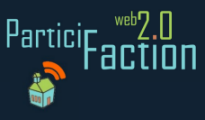As soon as people find out that you're a teacher, they often have something to say about "these kids today." Usually, it is something about how cell phones, iPods, and computers are ruining their lives, and, more specifically, their minds. Must they always be texting? Thumbing? Surfing? Good gracious me!
I think the answer is: yes, they must, and I think there's a good reason for it. That reason is simple: we are human, and humans are inclined to use the tools available in their environments. Tools are an extension of our minds.
Our behaviours are determined by our human minds, but this is not to say that there is merely a deliberate, conscious, one-way flow from brain to world, however. We are dynamic systems: feedback loops. Our sensory input, neural processing, and resulting actions are constantly, instantly refining and determining each other. Hold a tool in your hand, and it becomes part of the feedback loop, too: your senses are extended to it. As Carl Zimmer notes in his recent article, if you are poking a stick into an animal's burrow, "as you poke away, you are aware of what the far end of the stick is touching, not the end you're holding in your hand." Our brains are not just good at having us use tools: our brains want to use tools, and quickly learn to seamlessly incorporate them as an extension of ourselves.
Enter someone with, for example, an iPhone -- a tool for acquiring and distributing information: it would be unnatural to not use it. The only difference between "that rude, anti-social teenager texting at the dinner table" and "that intelligent teen naturally using available tools for social communication at a time convenient for her" is our definition of "good manners": something that, it would benefit us to remember, is a social construct itself. New culture may call for new social constructs...
Zimmer has me convinced about the "extended mind" as it applies to current technologies. He reminds us that Socrates "worried that writing would make people forgetful and unwise." Similarly, post-Gutenberg, many in the western world felt that distribution of texts of knowledge to the masses would dilute learning. Today, reading texts, and writing, are the definition of what makes one knowledgeable and wise.
In a Web 2.0 world, we should not inhibit the use of technology out of respect for outdated social constructs, or outdated pedagogical constructs, for that matter. These technologies are tools that become an extension of our dynamic selves, and we are creatures with a uniquely large ability to acclimate to a dynamic world.
Thursday, April 2, 2009
Subscribe to:
Post Comments (Atom)




No comments:
Post a Comment